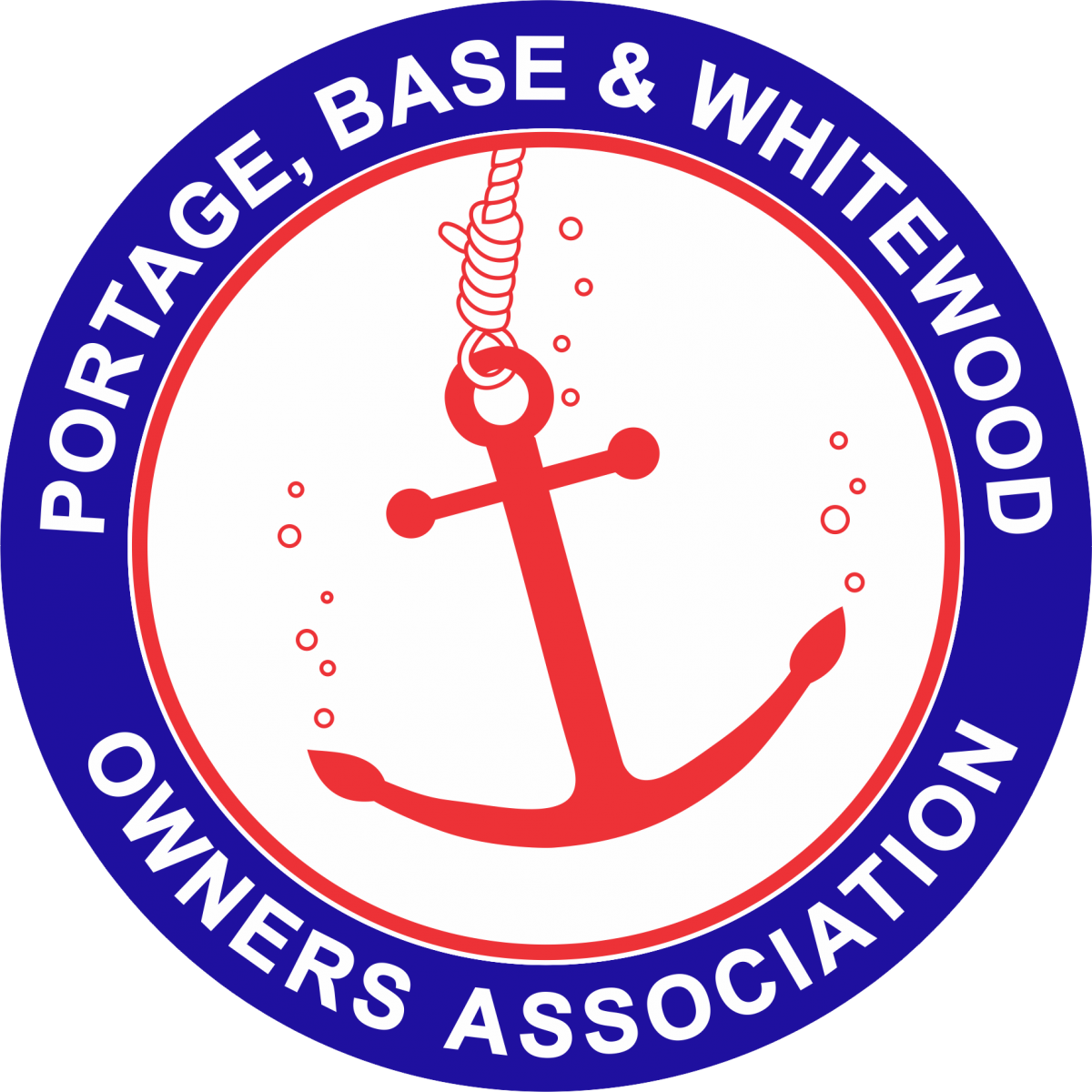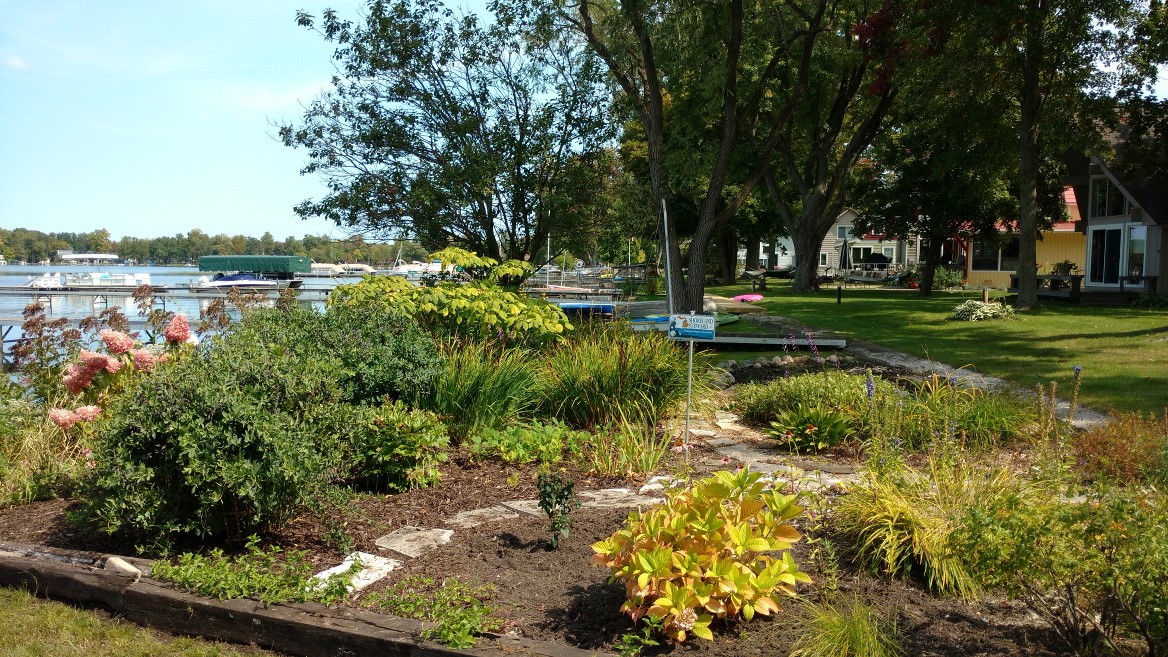
An example of a silver-level shoreland as rated by the Michigan Shoreland
Stewards Program. Click HERE to rate your shoreline.
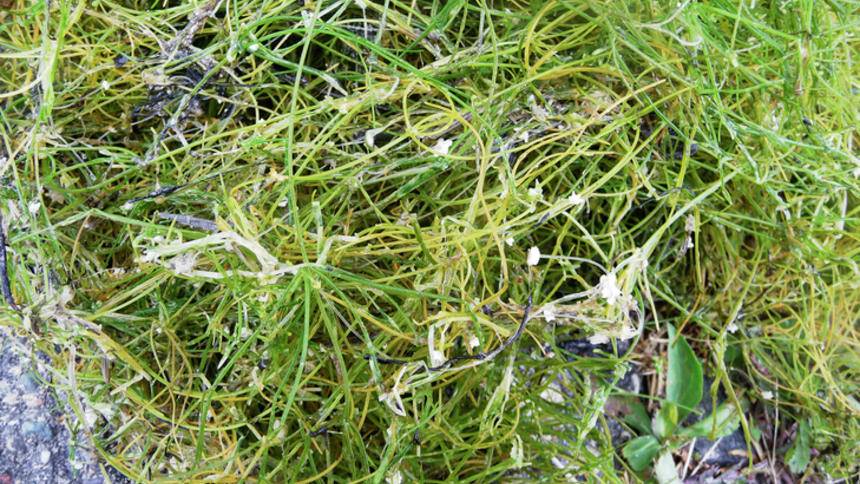
Lessons Learned from Fighting Invasive Species (whether an invasive lake plant from Siberia or a virus from China):
- We’re all in this together.
- Listen to the science.
- The invasive species can be managed, not controlled and certainly not eradicated.
- The invasive species does not discriminate and does not care who you are.
- Be prepared.
- Be thoughtful.
- There are costs no matter what.
- Look at the progress, not the failures.
- No matter what you do, nothing is perfect in fighting the invasive species.
- The sun will rise tomorrow.
Invasive Weed Study
The PBWOA board has heard the concerns of members and has taken significant steps to address each of them. Over this past year the board has met with several scientific lake management companies, as well as governmental agencies in order to better understand the problems we’re facing and the possible solutions to either eradicate or manage invasive species in our lake system. We felt it was most important to deal with someone who could provide an unbiased analysis and recommend treatment. As a result, PBWOA has contracted with Restorative Lake Sciences, an aquatic analysis company to perform a hands on, feet on the ground, scientists in boats study. They will survey, analyze and produce a detailed report of what species we have, where they are, their size and recommended treatment methods. RLS does NOT provide weed control services, only unbiased recommendations for the best treatment.
This initiative was presented to Dexter, Hamburg, Putnam and Webster Townships for their input. Their concern about the health of our lakes was evident and they volunteered to collectively contribute $5,000 dollars toward this study, which is half of the total cost of $10,000. In addition, we are soliciting donations from other lake associations on the chain and affected businesses to help offset the cost.
Our hope is that results from this comprehensive study will pave the way to a holistic management program that will combat current as well as new invasive species that could negatively impact our lakes ecosystem.
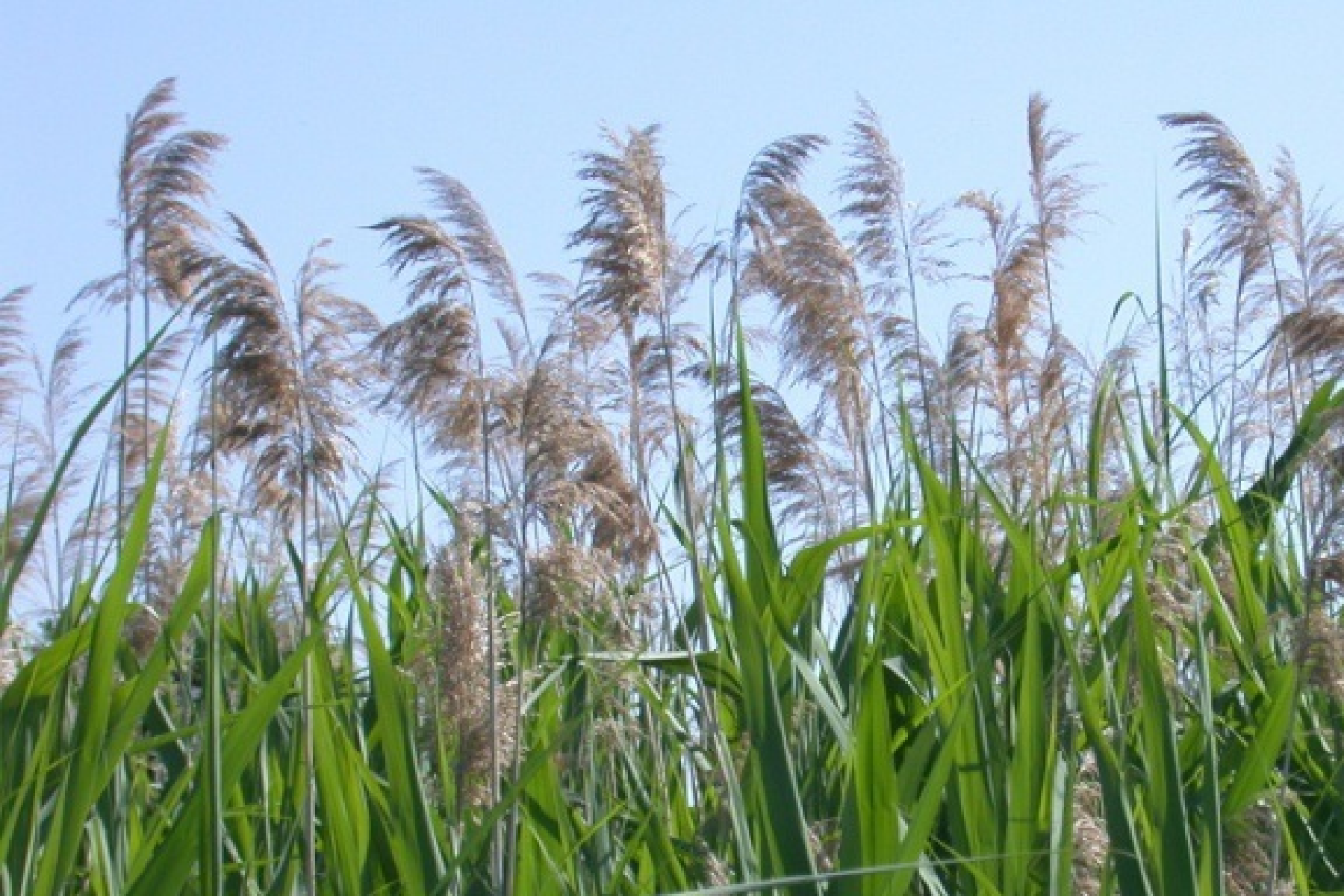
Phragmites australis (frag-MY-teez), also known as common reed, is a perennial, wetland grass that can grow to 15 feet in height.
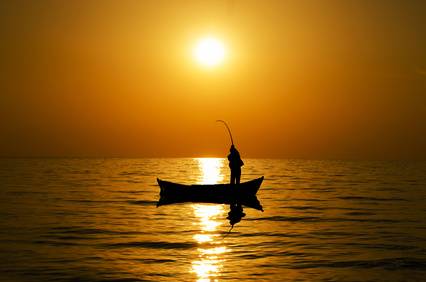
Those of us living on the Portage Chain of Lakes are truly blessed with some of the finest fishing in the State, yet not many people know it.
Fishing the Huron
Craig Kivi
